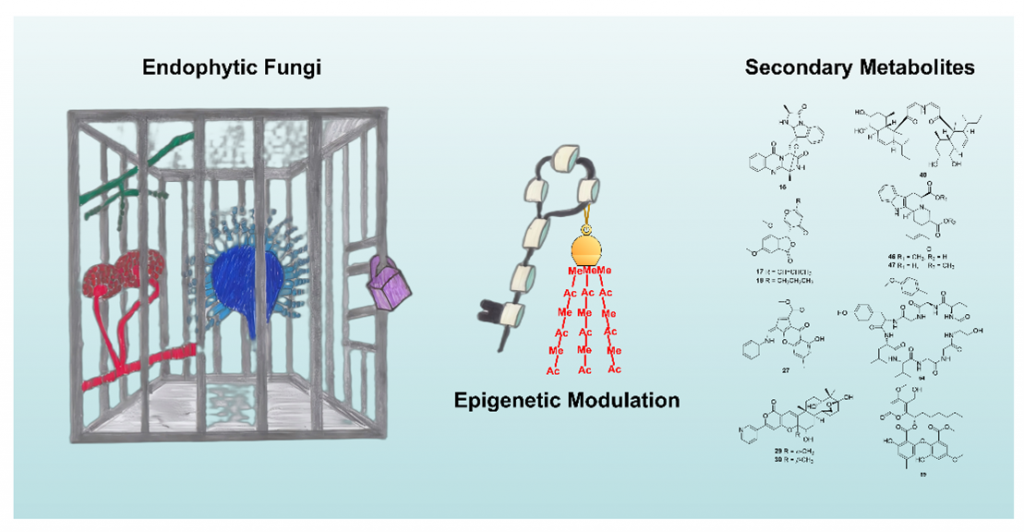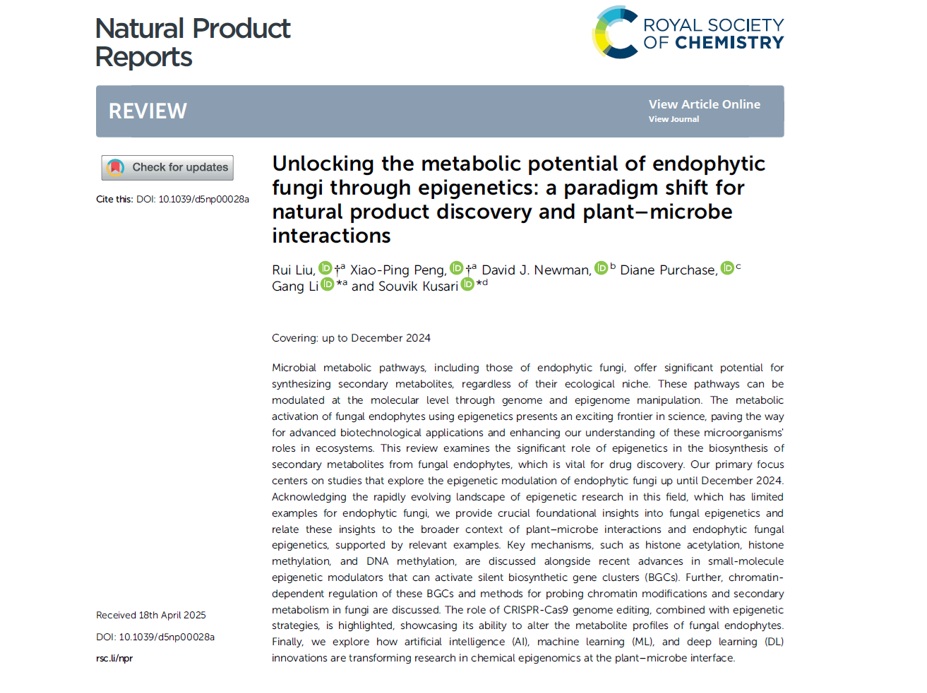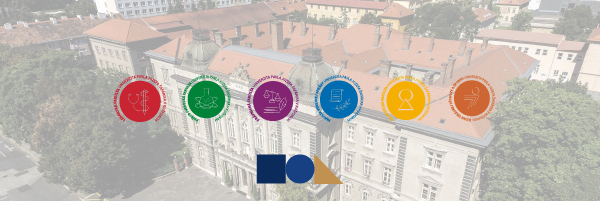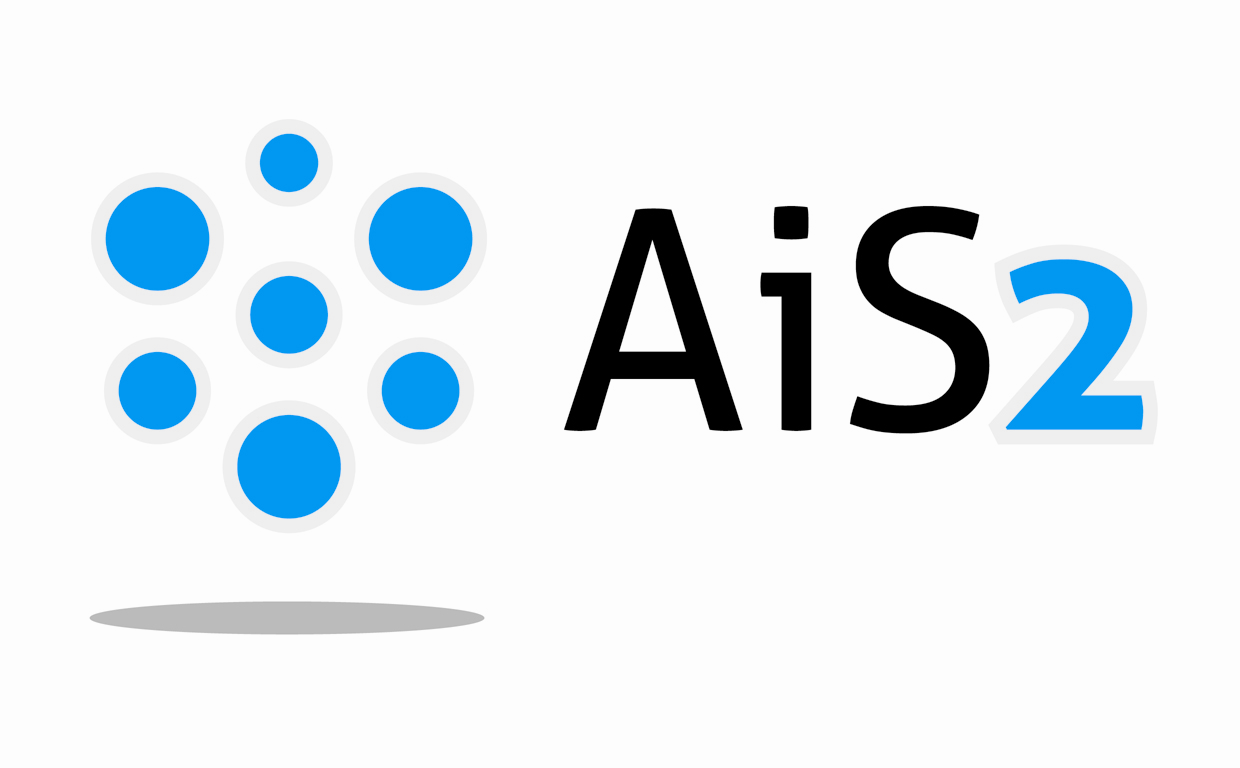
Priv.-Doz. Souvik Kusari, Dr. rer. nat., university professor at the Department of Genetics, Institute of Biology and Ecology, Faculty of Science, P.J. Šafárik University in Košice, has made a significant impact with a groundbreaking review titled “Unlocking the Metabolic Potential of Endophytic Fungi Through Epigenetics: A Paradigm Shift for Natural Product Discovery and Plant-Microbe Interactions.” Published in the prestigious journal Natural Product Reports by the Royal Society of Chemistry, United Kingdom (Impact Factor 10.6; Q1 journal), this work exemplifies the forefront of scientific exploration on endophytic fungal epigenetics. Priv.-Doz. Dr. Kusari successfully spearheaded a dynamic multinational collaboration that spanned four continents, uniting leading experts from the USA, UK, and P. R. China under a shared vision. This impressive initiative included contributions from Dr. Newman (USA), a titan and legendary figure in natural products research, Professor Purchase from the UK, a foremost authority in Environmental Biotechnology, and Assoc. Professor Li from P. R. China, an emerging star in endophyte-mediated drug discovery, among other distinguished international colleagues. The publication delivers cutting-edge insights into the epigenetic activation of biosynthetic pathways in endophytic fungi and the plant-microbe interface, effectively engaging both specialists and a broader scientific community. It masterfully integrates perspectives from natural product chemistry, fungal epigenetics, plant-endophyte interactions, and artificial intelligence to address critical gaps in the current literature, solidifying its significance in the field.

Activating dormant or low-expression biosynthetic BGCs in endophytic fungi via epigenetic mechanisms presents significant opportunities for identifying and producing novel bioactive compounds. By modulating epigenetic factors such as histone acetylation, histone methylation, and DNA methylation, researchers can reveal the metabolic potential of these fungi, potentially leading to significant advancements in pharmacology and biotechnology. Adopting cutting-edge strategies—such as innovative chemical modulators, genetic engineering, and AI-enhanced predictive models—highlights the pivotal role of epigenetic regulation in tapping into the underexplored capabilities of fungal endophytes. The field of epigenetics provides a robust framework for advancing our understanding of plant-fungal interactions while facilitating the translation of research outcomes into actionable intellectual property. This includes leveraging endophytic fungi as microbial platforms for biotechnological production of pharmaceutically relevant compounds. Looking forward, epigenetics as a scientific field is poised to transform the landscape of large-scale fungal endophyte biotechnology.
This publication stands as a monumental achievement for both the Department of Genetics and the Institute of Biology and Ecology, marking their impressive debut in this prestigious journal. This milestone not only elevates the visibility of the department and institute on the global stage but also significantly enhances their reputation within the scientific community worldwide. Furthermore, this success lays a solid foundation for Priv.-Doz. Dr. Kusari and his team for addressing crucial questions regarding the biosynthesis and regulation of pharmacologically significant natural products from fungal endophytes, including potent anticancer anthraquinones. Moreover, it sets the stage for groundbreaking advancements in biotechnology and agriculture, promising a future brimming with innovation and collaboration.
Further information available online
Rui Liu, Xiao-Ping Peng, David J. Newman, Diane Purchase, Gang Li, and Souvik Kusari. Unlocking the metabolic potential of endophytic fungi through epigenetics: a paradigm shift for natural product discovery and plant-microbe interactions. Nat. Prod. Rep., 2025, Advance Article, https://doi.org/10.1039/D5NP00028A










